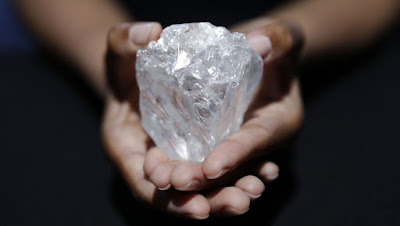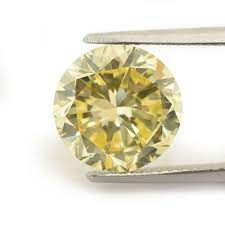Posted on June 30, 2022
This is an update of my post published on June 30, 2011:
 How'd you like to be a worker at a mine, just busy loading a truck with spadeful after spadeful of dirt—and then you spot the world's largest diamond? What would you do?
How'd you like to be a worker at a mine, just busy loading a truck with spadeful after spadeful of dirt—and then you spot the world's largest diamond? What would you do?The African man who found the Excelsior Diamond in South Africa, on this day in 1893, hid it from his overseer and personally delivered it to the manager of the mine. The blue-white diamond weighed more than 970 carats, and news of its discovery quickly spread all over the world.
For 12 years, this was the record holder of the largest diamond ever found. However, it was supplanted as “the biggest” by the Cullinan Diamond, which was more than 3,000 carats!
The Excelsior Diamond was eventually cut into ten stones.
By the way, do you wonder what happened to the man that found the diamond? He was given a 500-pound reward plus a horse equipped with a saddle and bridle.
Did you know...?
- Diamonds are made of carbon, the same material that makes the graphite in our pencils and coal!
- Diamonds are formed in high-pressure, high-temperature conditions deep underground, in the Earth's mantle.
- Diamonds are the hardest natural material known, so they are often used in cutting and polishing tools.
- Many diamonds are clear and colorless. Small amounts of impurities (such as one atom of the contaminant per million carbon atoms) can give a diamond color. If the contaminating atoms are boron, the diamond is blue; nitrogen atoms make a diamond look yellow, and diamonds that have been exposed to radiation can become greenish.
To see some famous diamonds, check out this website.



















No comments:
Post a Comment